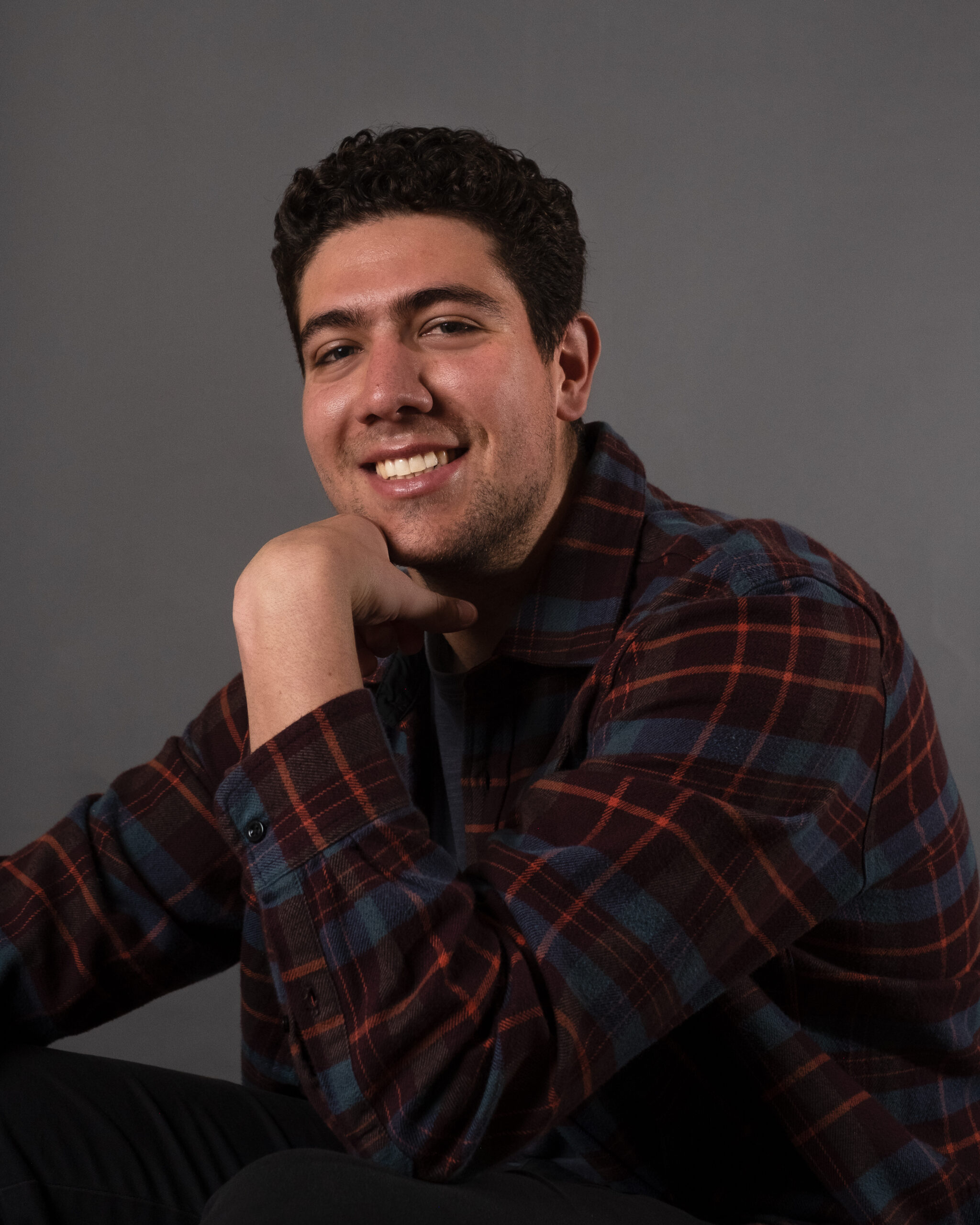Noah Rothman (he/him)

Title: Class of 2024
“Fall of 2020, everything was online, so I worked in Israel that year, where I was a counselor on a conservative Jewish gap year program called Nativ. And that was really a change of pace from anything I had done because I had always been in Orthodox institutions. Growing up, I was always the super Jew. I went to an Orthodox shul, and my life at home was more Orthodox. And it was always a huge thing, like, I couldn’t go to certain people’s parties because they started on Shabbat; I was always asked to do all the religious things. I remember once in high school, there were these spiral staircases, and everyone was peering down to watch all these men jump and sing while rabbis and boys celebrated. All the girls were observing, and the situation felt really wrong. I questioned the message conveyed and the values reinforced. This gap year program was my first immersion as an adult into a non-traditional and more accepting environment, and I was excited about it. The year ended up being a deep dive into everything being together and egalitarian; everyone was allowed to participate however they wanted within the religious space. And that was eye-opening.
Upon arriving at Berkeley, I was thrilled to be part of a religious community fostering openness. At first, I followed traditional Jewish laws like refraining from using my phone on Shabbat, not going out much on Friday nights, and keeping Kosher. But now, I don’t follow those practices as strictly. However, Shabbat and the sense of community it brings are still incredibly important to me.
It can be tough to navigate my identities, especially when making decisions. For example, I identify strongly as Jewish, but I also love to ski, which often means skiing on weekends, which goes against traditional Jewish laws. I have felt guilty about these conflicting decisions in the past, but I’ve learned to be kinder to myself and understand that these choices don’t define me as a Jew.
I’ve realized that for me to have a healthy relationship with my religious identity, there are certain decisions I need to make. I need to make decisions prioritizing my happiness and doing things I find meaningful, even if it means deviating from traditional Jewish laws. But that took a long time for me to understand and come to terms with. And even still, if I miss something so simple as Friday night dinner, which is a really special thing and a very grounding experience, my whole week is thrown off. And this illustrates what I’ve discovered. Of course, Jewish traditions and rituals will forever be a central part of my life, but I’ve come a long way in learning who I am and what’s important to me.
At Berkeley, I’m still asked to do religious things, but it doesn’t bother me anymore. I take a lot of pride in it. It’s really a gift to both be able to, and like to lead confidently and to have like this wide range of Jewish skills. And I love that, I really love that.”
